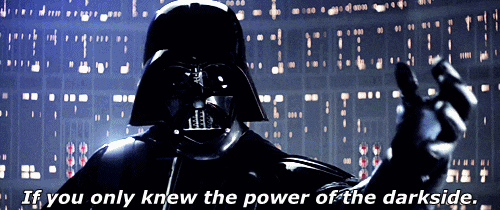The Dark Side of the Fo—under's Life: Uncertainty
6-minute read covering the uncertainties involved in founder life and how to navigate them
Welcome to A Founder’s Life for Me! I’m Alek, and based on my experiences building companies, I provide practical recommendations on developing your company and career.
The Dark Side
Being a bootstrapped founder has many advantages. These advantages mostly come down to “freedom.” Freedom to choose what you work on, when you’re working, and do the job the way you want. There is no such thing as a free lunch, and being a founder is no exception. These freedoms have a price, and that price is “uncertainty.” Uncertainty about where my paycheck will come from, whether I’m working on the right thing, and whether I’ll succeed.
Today, I’ll discuss this dark side of being a founder, the uncertainties I face every day, and how I’ve dealt with them.
Uncertain paychecks
Over the last two years, I’ve been close to a $0 paycheck a few times. Contracts end, renewals are uncertain, and sometimes, new opportunities don’t come as quickly as you’d like. When the possibility of no income stares you down, you feel small. You wonder, “Should I be working on something more stable? Am I right for this founder thing?” I never walk away from this staring contest feeling like a winner, but here are some of the strategies I’ve used to hold my own against the $0 paycheck:
Build and maintain a cash cushion—I guaranteed I could easily cover my monthly expenses for six months even if I had $0 income. After starting to earn an income, I ensured I always kept at least that six-month cash cushion readily available in case I ever needed to fall back on it. As a result, I never felt like my back was up against a wall, and when renewals came around, I wasn’t desperate.
Build and maintain a relationship cushion—If I ever end up with no savings to fall back on and no income on the horizon (threat level midnight), I have people I can turn to. I’m fortunate to have friends and colleagues who’ve enjoyed working with me and who I’d love to work with. It’s comforting to know people are out there who are willing to lend a hand if I ever need it.
Sign many long-term contracts—The best way to increase your income stability is to sign several long-term contracts with varying expiration dates. The worst-case scenario is having nearly all your income rely on a single contract or all your contracts ending on the same date. Hedge your bets and spread your income over a few different relationships when possible.
Uncertainty about where to focus
As a founder, navigating the uncertainty of where to focus your efforts is one of the trickiest aspects of the job. With numerous potential paths and limited resources, making the right decision is a high-stakes bet. Here’s how I tackle this challenge:
Spend more intentional time on strategy—I’ve dealt with small outcome spaces for most of my career. I was presented with decisions, and the options were usually apparent. My decisions were limited to “Which option do I pick?” and the answer was usually obvious. Now, the challenge isn’t “which option to decide,” it’s “what decisions do I need to make?” As a result, I’ve had to spend more time planning where to spend my time. I can’t just react and work through a to-do list; I need to identify high-impact work and put it on my list in the first place.
Build tests to address uncertainty—I don’t want to go all-in pre-flop on the first idea that crosses my mind. I want to play out the hand, gather information, and only place big bets when I know I’ll win. Uncertainty about where I’m investing my time often stems from a lack of information. Instead of letting this paralyze me, I break down my uncertainty into specific questions. Then, I design small experiments to gather the required data. For instance, if I’m unsure whether a new product feature will be well-received, I might create a marketing page and measure interest before committing to a rollout. This approach reduces risk and provides clarity on the best path forward.
Understand that other people don’t move at the same pace as you—I’ve had to learn to be patient with clients and partners, recognizing that everyone has their own pace and priorities. I might want a contract to be signed today, but the person on the other end has their own life and priorities. Signing that sheet of paper isn’t always the #1 thing on their list, even if it’s the #1 thing on mine. This understanding helps me manage my stress and expectations.
Uncertainty about whether you’ll succeed
The fear of failure looms large for any founder. There is constant self-inflicted pressure to succeed, but I’ve developed strategies to manage this uncertainty and keep moving forward:
Minimize your worst-case scenario—One way to mitigate your fear of failure is to really define your worst-case scenario, “If I fail, what’s the worst that could happen?” My current worst-case scenario is “Every client I’m working with cancels their contracts today and refuses to pay me outstanding invoices.” If that happens, I’ve acquired many skills that will advance my career. I’ve become a better programmer, acquired a deep knowledge of AI, improved at developing client relationships, and learned more about effective product design. I’ve manage the financial risks discussed in “Uncertain paychecks,” so my worst-case scenario isn’t that bad.
Set yourself up for a medium case—What falls between your worst and best case scenarios? My “big idea” may never blow up, but I am earning a good income, saving money, and building the skills I want.
Leave yourself open to a best-case scenario—Once I’ve done #1 and #2, I focus on the best-case scenario. How do I set myself up for a dream outcome? This means staying open and ready for unexpected opportunities. Sometimes, the best opportunities come from unexpected places, and being adaptable allows me to seize these chances when they arise. For more on this topic, read “Adapt or Endure? A Founder’s Guide to Navigating Changing Circumstances,” linked below.
Lessons Learned and Moving Forward
Navigating the uncertainties of being a bootstrapped founder is often daunting. The freedom to choose your own path, manage your own time, and shape your own work is empowering but comes with significant challenges. Financial uncertainty, decision-making dilemmas, and fear of failure are constant companions. I’ve learned to manage these obstacles, and you can, too.
You can mitigate financial uncertainty by building a financial cushion, fostering supportive relationships, and diversifying income streams.
Intentional time spent on strategic planning, conducting experiments to gather data, and understanding the pace of others will help prioritize your focus.
Defining and preparing for failure will reduce your fear of it.
Ultimately, the founder’s journey is about balancing freedom with uncertainty. You can create a sustainable and successful company by staying adaptable and prepared.
#EntrepreneurLife #SelfEmployed #SelfEmployment #BusinessChallenges #StartupJourney #StartupLife #Bootstrapping #SmallBusiness #Entrepreneurship #StartupAdvice #FoundersJourney
By sharing my experiences, I hope to provide insight and advice to entrepreneurs facing similar hurdles. Please leave a comment or email me with any questions.




